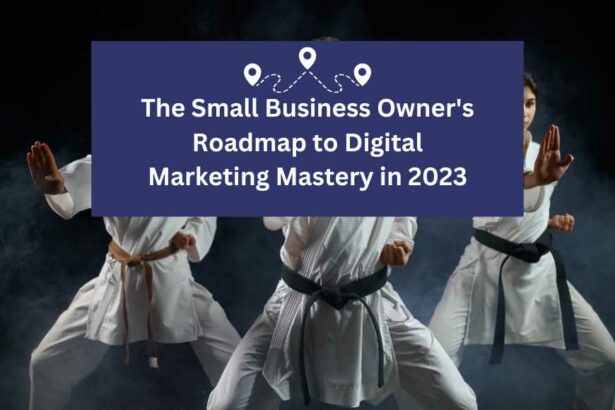Off-page SEO, the set of strategies and activities performed outside your own website, plays a crucial role in enhancing a website’s visibility, authority, and search engine rankings. While on-page SEO focuses on content and structure, off-page SEO is more about building relationships, credibility, and reputation.
In this comprehensive guide, we’ll explore the latest trends in off-page SEO for 2024, including how to get started, the best practices to follow, competitor analysis, and the impact of content creation, visuals, videos, breadcrumbs, and more. We’ll also discuss Google’s latest recommendations, examples of successful off-page SEO campaigns, and the essential tools you’ll need to succeed.
Getting Started with Off-Page SEO
Off-page SEO can be overwhelming if you’re new to it, but it’s a vital aspect of any successful SEO strategy. The key to getting started is understanding the fundamental principles and then building on them. These principles include link building, social media marketing, content marketing, influencer outreach, and online reputation management.
Understanding Link Building
Link building is the backbone of off-page SEO. It’s the process of acquiring hyperlinks from other websites to your own. Search engines, particularly Google, consider backlinks a significant ranking factor because they indicate the authority and credibility of your site.
To get started with link building, identify high-authority websites in your niche and look for opportunities to collaborate. This could involve guest blogging, participating in industry forums, or creating shareable content that attracts natural backlinks.
Social Media’s Role in Off-Page SEO
Social media has become a powerful tool for off-page SEO. Although social media links are typically “no-follow,” they still contribute to your site’s visibility and reputation. Social media platforms allow you to engage with your audience, share content, and build relationships with influencers.
To leverage social media for off-page SEO, focus on creating engaging content that encourages shares and interactions. Build a consistent presence on platforms relevant to your industry, and interact with users by responding to comments and participating in discussions.
Competitor Analysis and Best Practices
Analyzing your competitors is a smart way to understand the off-page SEO landscape and identify opportunities for growth. By examining your competitors’ backlinks, content strategies, and social media presence, you can gain insights into what’s working and how you can apply similar tactics to your strategy.
Conducting Competitor Backlink Analysis
Start by identifying your top competitors and using SEO tools like Ahrefs or Moz to analyze their backlink profiles. Look for patterns, such as websites that consistently link to your competitors, and consider reaching out to these sites for link-building opportunities.
By analyzing competitors’ backlink profiles, you can also uncover their content marketing strategies. This helps you determine what types of content resonate with your audience and where you can fill gaps.
Analyzing Competitors’ Social Media Presence
In addition to backlink analysis, it’s important to evaluate your competitors’ social media strategies. Check which platforms they are most active on, the type of content they post, and the level of engagement they receive. This information can guide your own social media approach, helping you create a strategy that stands out while resonating with your target audience.
Content Creation and Its Impact on Off-Page SEO
Content creation is closely tied to off-page SEO. High-quality content encourages sharing, which can lead to valuable backlinks and improved visibility. The key to success in 2024 is creating content that’s not only engaging but also optimized for sharing across multiple platforms.
The Importance of Visuals and Videos
Visual content, such as infographics, images, and videos, has a significant impact on off-page SEO. These elements are more likely to be shared on social media and can drive traffic to your site.
To incorporate visuals and videos into your off-page SEO strategy, focus on creating content that complements your written material. Infographics can summarize complex information, while videos can provide in-depth explanations or showcase products in action. Sharing this content on platforms like YouTube, Instagram, and TikTok can help broaden your reach and attract new audiences.
Creating Shareable Content
Creating content that people want to share is a key off-page SEO strategy. This involves understanding your audience’s preferences and producing material that resonates with them. Shareable content could include how-to guides, industry insights, entertaining videos, or interactive elements like quizzes.
Encourage sharing by incorporating social sharing buttons on your website and promoting your content across social media. Collaborating with influencers or industry experts to create co-branded content can also boost your content’s shareability and reach.
Google’s Recommendations and SEO Tools
Google’s guidelines and recommendations evolve constantly, so staying up to date is crucial for a successful off-page SEO strategy. In 2024, Google continues to emphasize the importance of quality content, user experience, and authoritative backlinks.
Google’s Latest Recommendations
Google recommends focusing on creating value-driven content that meets the needs of your audience. This includes high-quality, relevant, and unique content that addresses specific queries or solves problems. Additionally, Google values natural backlink profiles, discouraging link schemes or manipulative tactics.
Essential SEO Tools
SEO tools are invaluable for off-page SEO. They help you analyze competitor strategies, track backlinks, monitor keyword rankings, and assess your website’s overall health. Some popular SEO tools for 2024 include:
- Ahrefs: Excellent for backlink analysis and competitor research.
- Moz: A comprehensive SEO tool with domain authority tracking.
- SEMrush: Offers a range of features, including keyword research and backlink tracking.
- BuzzSumo: Great for discovering popular content and identifying influencers.
Conclusion
Off-page SEO is a dynamic and critical component of any successful SEO strategy. By understanding the latest trends, best practices, and Google’s recommendations, you can build a robust off-page SEO plan that drives traffic, builds authority, and enhances your search engine rankings.
Remember to focus on creating high-quality content, building relationships through link building and social media, and using SEO tools to track your progress. With a comprehensive approach to off-page SEO, your website can thrive in 2024 and beyond.





